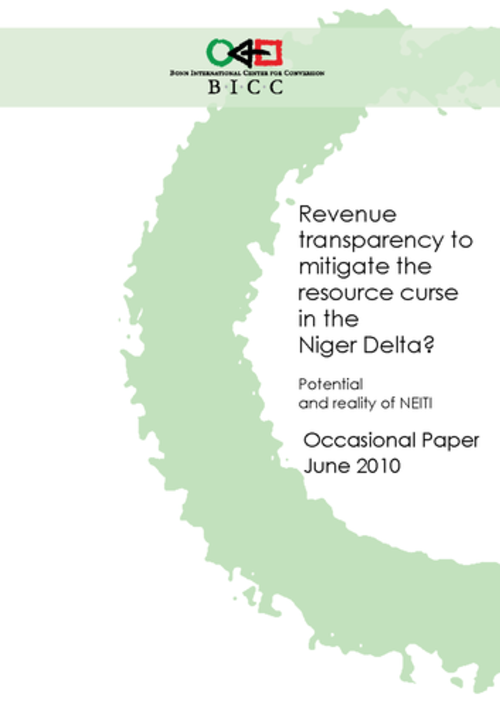Publications
Revenue transparency to mitigate the resource curse in the Niger Delta? Potential and reality of NEITI
Release Date
2010-06
Language
- English
Topics
- –
The paper begins with a discussion of the possible negative consequences of oil exploitation in developing countries, often referred to as resource curse, introducing the analytical framework of the ‘petro-state’ (Section 1). In order to assess the relevance of revenue transparency for addressing problems in the Niger Delta, the author then investigates the extent to which the negative consequences of oil exploitation were due to a lack of transparency and accountability.
For that purpose, Section 2 analyzes what constituted the resource curse in the case of the Niger Delta, applying the analytical framework. It examines different dimensions of the resource curse—the question of revenue distribution between the federal government and the Niger Delta constituencies (2.1), production-side dynamics (2.2), and a war economy funded through illegal oil bunkering (2.3). Based on this analysis, the third section assesses the potential of NEITI to alleviate some of the grievances emanating from oil extraction in the Niger Delta in more concrete terms. In specific, it investigates NEITI’s contribution to more popular participation in decisionmaking.
After a presentation of NEITI (3.1), the author delineates the limitations to its impact, which emanate from its scope (3.2) as well as its embeddedness within Nigeria’s political system (3.3).
PDF-Download
occasional_paper_V_06_10.pdf
[English] (743.59 KB)

Cite as
@techreport{Muller-Kone2010,
author = "Marie Müller-Koné",
title = "Revenue transparency to mitigate the resource curse in the Niger Delta? Potential and reality of NEITI",
latexTitle = "Revenue transparency to mitigate the resource curse in the Niger Delta? Potential and reality of NEITI",
publisher = "BICC",
institution = "BICC",
type = "BICC Working paper",
year = "2010",
address = "Bonn",
}
Document-Type
BICC Working paper
Publisher
BICC
Place
Bonn
Countries/Region
Cote D'Ivoire , Côte d’Ivoire , Chad , Nigeria



